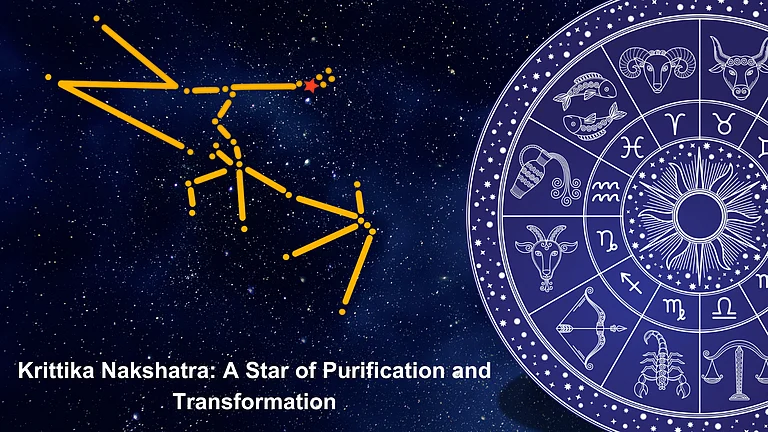One of the holiest days in the Hindu calendar, Mauni Amavasya, falls on Wednesday, January 29, 2025. Observances of fasting, stillness, and ceremonial baths in the Ganges River characterize this sanctified day, which is also called Maghi Amavasya. As a result of its profound religious importance, it draws millions of worshippers every year who are looking for a spiritual home.
Mauni Amavasya 2025: Everything You Need To Know About Date, Snan, Daan Timings, Significance And Rituals
Know about Mauni Amavasya 2025, a sacred day on January 29 for silence, holy baths, and rituals to cleanse sins, honor ancestors, and foster spiritual peace.
Date and Timing:
Mauni Amavasya in 2025 falls on Wednesday, January 29. It is a significant day during the Hindu calendar's Magha month.
Amavasya Tithi Begins: 07:35 PM on Jan 28, 2025
Amavasya Tithi Ends: 06:05 PM on Jan 29, 2025
The sacred bath, or Snan, on this day is really significant, especially at pilgrimage places like Prayagraj (Allahabad) during the ongoing Magh Mela.
Significance of Mauni Amavasya:
Spiritual Renewal: Mauni comes from the Sanskrit word Mauna, which means silence. People take a vow of silence to help them find inner peace and gain spiritual clarity.
Amavasya Connection: For the purpose of performing rituals to placate ancestors (Pitru), the day of the new moon, also known as Amavasya, is regarded to be spiritually potent.
Holy Bath: Taking a dip in sacred rivers like the Ganges is believed to cleanse sins and purify the soul.
Magh Mela: The day is an important component of the wider spiritual gathering, in which millions participate in religious observances.
Rituals and Practices:
Observing Silence (Maun Vrat):
In order to cultivate mindfulness, discipline, and devotion, devotees frequently observe a vow of silence throughout the day. It is believed that this practice enhances the depth of meditation and the connection with the divine.
Holy Bath (Snan):
Bathing in sacred rivers such as the Ganga, Yamuna, and Saraswati is central to the day's observances.
The Brahma Purana and other Hindu scriptures extol the virtues of this ritual, asserting that it can wash away accumulated sins.
The Brahma Muhurta—the pre-dawn period—is considered the most auspicious time for the Snan.
Charity (Daan):
Giving alms and donations on Mauni Amavasya is regarded as highly meritorious.
Common forms of charity include distributing food, clothing, and essential items to the needy.
It라이브 바카라 thought that giving black sesame seeds, blankets, and other things to Brahmins and those in need can really bring some spiritual perks.
Ancestral Rituals (Pitru Tarpan):
Devotees offer water mixed with black sesame seeds to appease their ancestors, seeking their blessings and ensuring peace for departed souls.
Fasting (Upvas):
A lot of people choose to fast on Mauni Amavasya as a way to practice self-discipline and show their devotion.
Astrological Importance:
Mauni Amavasya holds significant astrological value as it coincides with important planetary positions. The absence of the moon symbolizes a period suitable for introspection and spiritual transformation.
This time of year has a lot of good energy that makes meditation and spiritual practice easier.
By doing practices during the Amavasya period, you can lessen the bad effects of planetary problems.
Legends Associated with Mauni Amavasya:
The Story of Manu: According to legend, Lord Manu observed silence on this day and was granted divine wisdom and blessings. With this ceremony, the tradition of Mauni Amavasya was officially initiated for the first time.
River Ganga라이브 바카라 Descent: It is believed that on this day, the river Ganges descended from the heavens to purify the Earth, making bathing in her waters especially auspicious.
Preparations and Celebrations:
At Pilgrimage Sites:
In order to participate in the Snan rites, devotees congregate in locations such as Prayagraj, Haridwar, and Varanasi.
Special arrangements are made to accommodate pilgrims attending the Magh Mela.
Religious discourses, devotional singing, and spiritual assemblies mark the celebrations.
In Temples:
Temples are adorned with flowers and illuminated for the occasion.
Special prayers and havans are conducted to invoke divine blessings.
At Home:
Many households perform rituals dedicated to family deities and ancestors.
Silence, fasting, and charity remain integral parts of home-based observances.
Do라이브 바카라 and Don’ts on Mauni Amavasya:
Do라이브 바카라:
Take a bath in a holy river or offer water at home if travel isn't possible.
Practice silence and engage in meditation or chanting.
Offer food, clothes, and donations to the needy.
Perform Pitru Tarpan for ancestral peace.
Don’ts:
Avoid speaking unnecessarily or indulging in gossip.
Refrain from negative thoughts or actions.
Limit consumption of heavy or spicy food during fasts.
Benefits of Observing Mauni Amavasya:
Spiritual Cleansing: Bathing in sacred rivers is believed to wash away negative karma.
Inner Peace: Silence and meditation foster tranquillity and spiritual enlightenment.
Ancestral Blessings: Performing Pitru Tarpan ensures peace and blessings from ancestors.
Enhanced Positivity: The day's rituals help remove negative planetary influences and attract prosperity.
Mauni Amavasya 2025 is a chance to get back in touch with spiritual practices and honor the traditions of ancestors. Devotees can go through deep changes and renewal through silence, self-discipline, and acts of kindness. Observing this holy day, whether by taking a bath in the sacred Ganges or meditating and thinking at home, leads to spiritual growth and peace in the universe.

